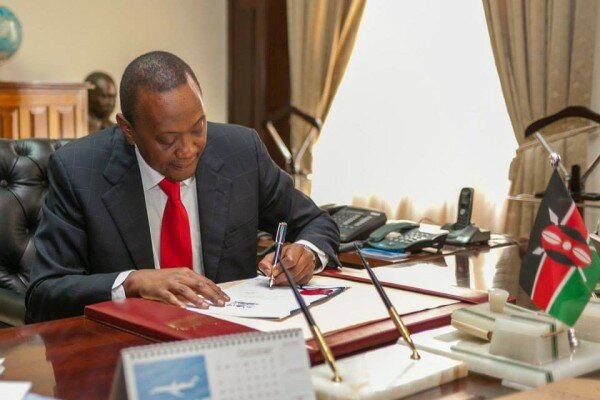
Image Courtersy of PSCU
As it crept into power by the skin of its teeth in Kenya a year ago, Uhuru Kenyatta’s Jubilee Coalition touted itself as the “digital” choice, rather than the older candidates it branded “analogue”. Almost exactly a year after Kenyatta was inaugurated, there have been small steps towards making Kenya a digital nation, but two big issues – one bequeathed to the new president and one of his own making – threaten to upset his agenda.
Kenyatta won power on the back of a tech-focused manifesto, which contained enlightened policies such as the flagship one laptop, one child programme, the establishment of a universal single registration system and expansion of the fibre-optic network.
During its campaign, the Jubilee Coalition made all the right noises with regard to technology – even releasing a campaign mobile app – and the noises have continued since. Kenyatta has used some of his most important speeches to promote a digital Kenya, saying in his inauguration speech technology would be central to Kenya’s growth, and using his Madaraka day speech in June to emphasise the role played by ICT in Kenya’s development agenda.
He has urged the management of public institutions to actively play a role in the country’s transformational agenda, and used his speech at the Transform Africa Summit in Rwanda in October to announce his administration was using ICT to transform Kenya and improve the lives of its citizens.
The words have been accompanied by some deeds. The first positive step was the establishment of a dedicated Ministry of ICT, which Kenyatta said was a statement of the new government’s commitment to technological advancement, with Dr Fred Matiangi at the helm.
There have been measures introduced designed to make Kenya more efficient through digitisation, including the automation of the tax system at the Kenya Revenue Authority (KRA) – though this has subsequently faced some technical problems – and the launch of a one-stop-shop portal to ensure effective delivery of public services.
The president has also ordered the digitisation of Mombasa Port, launched a website allowing citizens to report corruption, and overseen the Nakuru becoming Kenya’s first free Wi-Fi town and only the third in Africa.
Yet all of these relatively minor baby steps currently remain overshadowed by two glaring problems, one left to Kenyatta by the previous administration of Mwai Kibaki and one entirely of his own making.
Konza Techno City, the flagship project of the Vision 2030 development agenda launched by Kibaki’s government, remains a sore subject. The project has attracted criticism over delays and debates over what county it falls into, while a report by a professor at the University of Cape Town (UCT), South Africa, said the Konza project and others like it risked worsening marginalisation and and inequality within local communities.
Kenyatta, aside from urging China to invest in the project, has remained strangely quiet on Konza, which remains merely a figment of the imagination in terms of being a usable city and is already subject to far too many problems.
The second serious problem is the Jubilee’s flagship laptops for schools programme, which has been mired in controversy and allegations of corruption, with the tender now having been cancelled twice. Indian firm Olive Telecommunications has gone to court to appeal against a ruling by the Public Procurement Administrative Review Board (PPARB) revoking the award of the tender to company, while the tender was previously cancelled following “astronomical” figures being quoted by various bidders.
The result is that the laptops programme is now mired in legal action as damaging to its effective implementation as that which has surrounded the digital migration process, with no clear idea of when it may be implemented, if ever. The mismanagement of the policy and the allegations of corruption may not be Kenyatta’s fault – just as he is not directly responsible for the delays to Konza – but the problems are overshadowing his agenda and will damage his legacy unless stronger and more competent leadership is exerted.
This author wrote in October that the laptops programme was already “mired in confusion and expense”, and warned on the day of his inauguration he must get these flagship policies right in order for Kenya to be producing the kind of qualified young people in order to staff a technopolis as ambitious in scope as Konza, should it ever be completed.
Small signs of progress in terms of digitisation aside, there is no evidence he has yet got the central planks of his manifesto in place to truly make Kenya a digital nation.

















